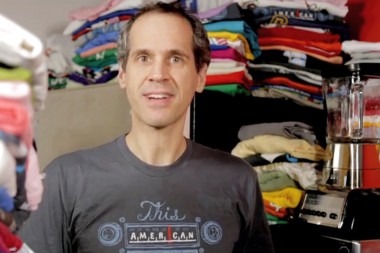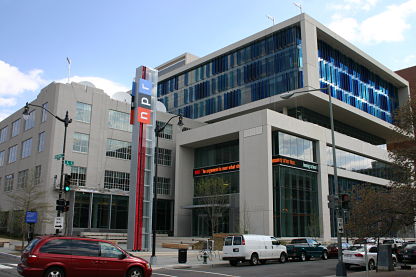Development
APTS, NPR retooling 170 Million Americans campaign
A grassroots initiative that encourages citizens to lobby Capitol Hill for continued funding to public media is changing its name, revamping its ...Forum will focus on philosophies of public media’s local service
The next Public Media Futures Forum, the latest in an ongoing series of events examining topics of interest to the field, will ...Rep. Lamborn once again targets funding for NPR on Capitol Hill
Republican Colorado Congressman Doug Lamborn today reintroduced legislation to kill federal funding for NPR. Its language is identical to his bill that ...Sesame Workshop trims 10 percent of workforce as financial losses mount
Sesame Workshop, production home to the iconic pubTV children’s program Sesame Street, announced Tuesday that it is laying off 10 percent of its workforce, ...CPB reduces aid to longtime grantees
CPB is reassessing its funding commitments to several grantees that provide specialized assistance and diverse programming to the public TV system.PubTV stations move to pitch sustainer gifts during pledge
“Sustainers,” as this increasingly commonplace breed of member is called, renew at higher rates than those responding to traditional pledge pitches.Planet Money crowdfunder soars, PRI campaign falls short of goal
Two of public radio’s three biggest distributors launched major crowdfunding experiments in the past month, with wildly different results.Facing financial woes, KCETLink to focus on ‘transmedia’
KCETLink laid off 22 full-time employees April 19, signaling another change of course in the Los Angeles public media organization's search for ...A digital revolution for public radio fundraising
Marketing consultant John Sutton has been forecasting what public radio will look like in 2018, and his predictions, published on his blog RadioSutton ...Public radio tattoos make a comeback
The latest package of public radio fundraising premiums allows devout listeners to temporarily brand their passion for their favorite shows on their ...From Massachusetts Ave. to NoMa
The April 13 broadcast of Weekend Edition Saturday was the first to originate from NPR's new $201 million headquarters.Benefits to multicasting pledge: new and lapsed donors respond
After 16 months on the air, WQED-TV’s all-pledge multicast Showcase channel is steadily bringing in donations of around $16,000 a month for ...Few ‘Magic Moments’ in March pledge
Pledge results reported by public TV stations from recently concluded on-air fundraisers were down 20 percent to 25 percent from the March ...PRPD offers new round of trainings
The Public Radio Program Directors Association will expand its training programs for stations this year and continue its Sense of Place studies ...Massachusetts’ WFCR adds to capital campaign with Cosby fundraiser
New England Public Radio in Amherst, Mass., got a helping hand earlier this month from a famous friend when listener and local ...







